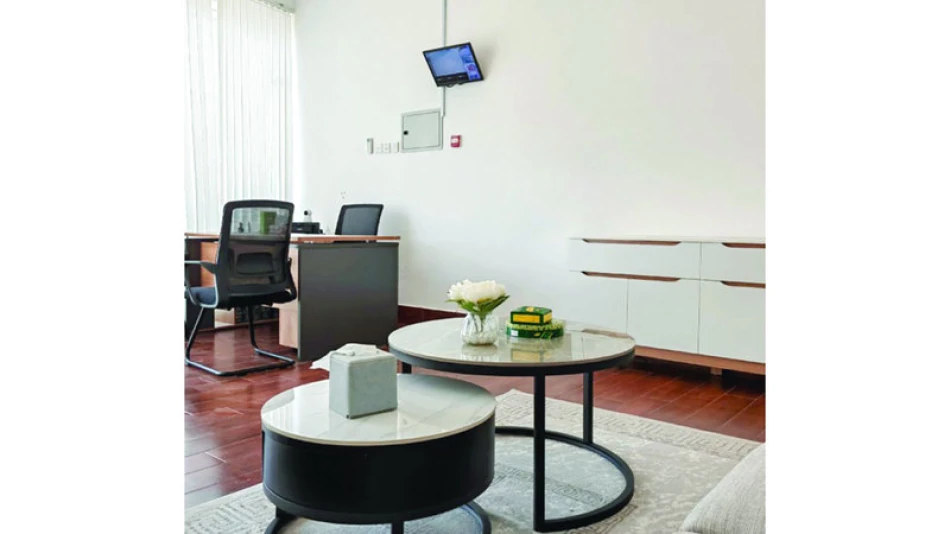
Emirati Matchmaker Leverages AI to Revolutionize the Art of Finding Partners
UAE's First AI-Powered Matchmaking Platform Challenges Traditional Marriage Customs
The United Arab Emirates has launched its first officially licensed AI-driven matchmaking platform, "Shariki," marking a digital transformation of traditional marriage arrangement practices. The platform combines artificial intelligence algorithms with Islamic cultural values, offering compatibility percentages up to 90% while maintaining strict privacy controls and requiring family involvement in final meetings.
From Traditional Matchmakers to Digital Algorithms
The traditional figure of the khattaba – the female matchmaker who would visit homes with her notebook of potential suitors – has evolved into a sophisticated digital platform. Where once families relied on whispered recommendations in social gatherings, users now receive precise compatibility scores through AI analysis.
Founder Abu Nahyan, an Emirati citizen, spent over two years securing the necessary licenses to operate this culturally sensitive business. The platform officially launched in late 2024 after obtaining approval from Ras Al Khaimah's Economic Development Department and the Community Services Administration at Ras Al Khaimah Courts.
Regulatory Framework Ensures Cultural Compliance
The licensing process reflects the UAE's careful approach to digitizing traditional practices. Marriage mediation services are exclusively licensed to UAE nationals, recognizing the cultural sensitivity surrounding family formation. Court approval isn't merely administrative – it represents judicial oversight of an industry that directly impacts family stability.
"We wanted to ensure our operations align with social customs and religious principles," Abu Nahyan explained. The platform maintains high privacy standards, refusing to share photos, phone numbers, or allow direct messaging between users outside official channels.
How AI Matchmaking Works in Practice
Users complete detailed profiles including personal information, preferences, and specific requirements for potential partners. The AI system processes this data to generate compatibility percentages, with some matches reaching 90% compatibility.
The process maintains traditional elements: after electronic approval from both parties, meetings occur in family homes with guardians present, preserving the sanctity of Islamic marriage customs. The platform gives users up to 14 days to decide on proceeding with marriage arrangements after initial compatibility confirmation.
Addressing Modern Social Challenges
Abu Nahyan identifies shrinking social circles as a primary challenge facing today's marriage-seekers. Unlike previous generations who relied on extended family networks and neighborhood connections, many young people now live in large cities with limited opportunities to meet suitable partners through traditional means.
This gap has driven some toward unlicensed applications that expose users to exploitation risks. Shariki aims to fill this void by providing a secure, officially sanctioned platform that leverages the UAE's digital transformation while respecting cultural identity.
Market Positioning and Accessibility
The platform charges a symbolic fee of AED 1,099 for lifetime access, including four compatibility attempts. This pricing strategy serves dual purposes: ensuring user seriousness while covering operational costs. The company offers discounts during national occasions and holidays, plus strategic partner discounts.
Notably, the platform waives fees for humanitarian cases where financial circumstances prevent payment, requiring only AED 100 donated to registered charities on behalf of successful couples.
Multi-Platform Digital Strategy
Shariki maintains presence across nine social media platforms including Instagram, TikTok, Facebook, LinkedIn, and messaging channels like Telegram and WhatsApp. This comprehensive digital footprint aims to educate users about licensed matchmaking services while expanding accessibility.
Regional Innovation and Future Expansion
The platform represents the UAE's first system combining life partner search with artificial intelligence capabilities. Currently developing a smartphone application, Shariki plans to serve users both within the UAE and internationally, positioning itself for regional expansion.
Registration remains open to all nationalities, with balanced male-female participation rates. The founder expects increased enrollment following the mobile app launch, coinciding with the UAE's "Year of Community" initiative.
Cultural Adaptation Challenges
Abu Nahyan acknowledges that introducing this novel concept faces resistance from traditional perspectives on marriage arrangement services. Many people still prefer family connections over institutional matchmaking services, viewing digital platforms with skepticism.
However, the platform's official licensing and court approval help establish credibility within conservative communities that value institutional endorsement for family-related services.
Social Impact and Community Responsibility
Beyond individual matchmaking, Shariki positions itself as carrying broader social responsibility for increasing marriage rates and protecting users from exploitation by unlicensed platforms that blur lines between casual dating and serious marriage intentions.
The founder emphasizes continuous development as key to success, viewing current achievements as launching points for further innovation rather than final destinations. The platform's integration of modern technology with traditional values reflects the UAE's broader approach to cultural preservation amid rapid modernization.
As digital transformation reshapes social institutions globally, the UAE's approach to AI-powered matchmaking demonstrates how technology can enhance rather than replace cultural practices, potentially serving as a model for other traditional societies navigating similar transitions.
Most Viewed News

 Sara Khaled
Sara Khaled






